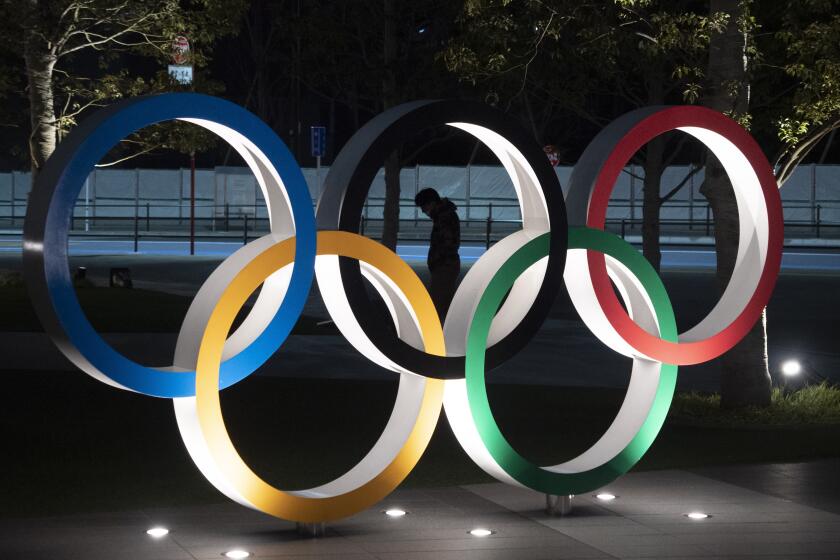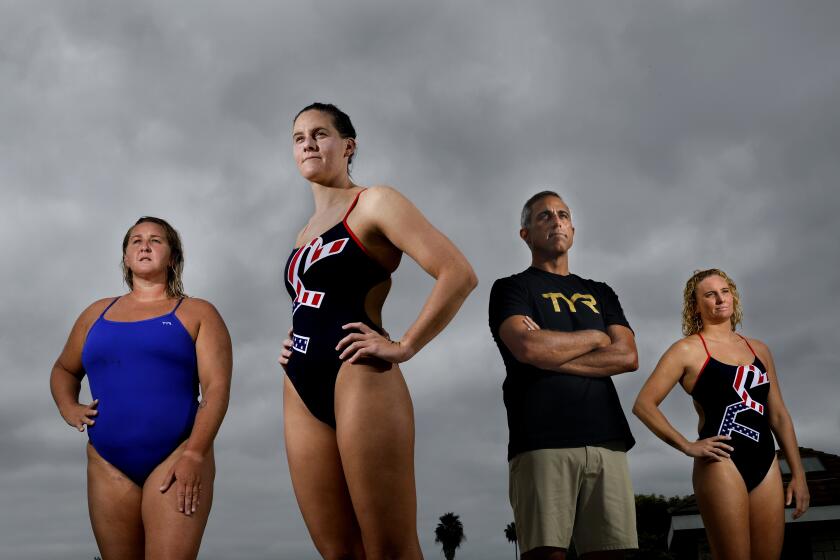U.S. women’s water polo team carries legacy of triumph and tragedy into Olympics
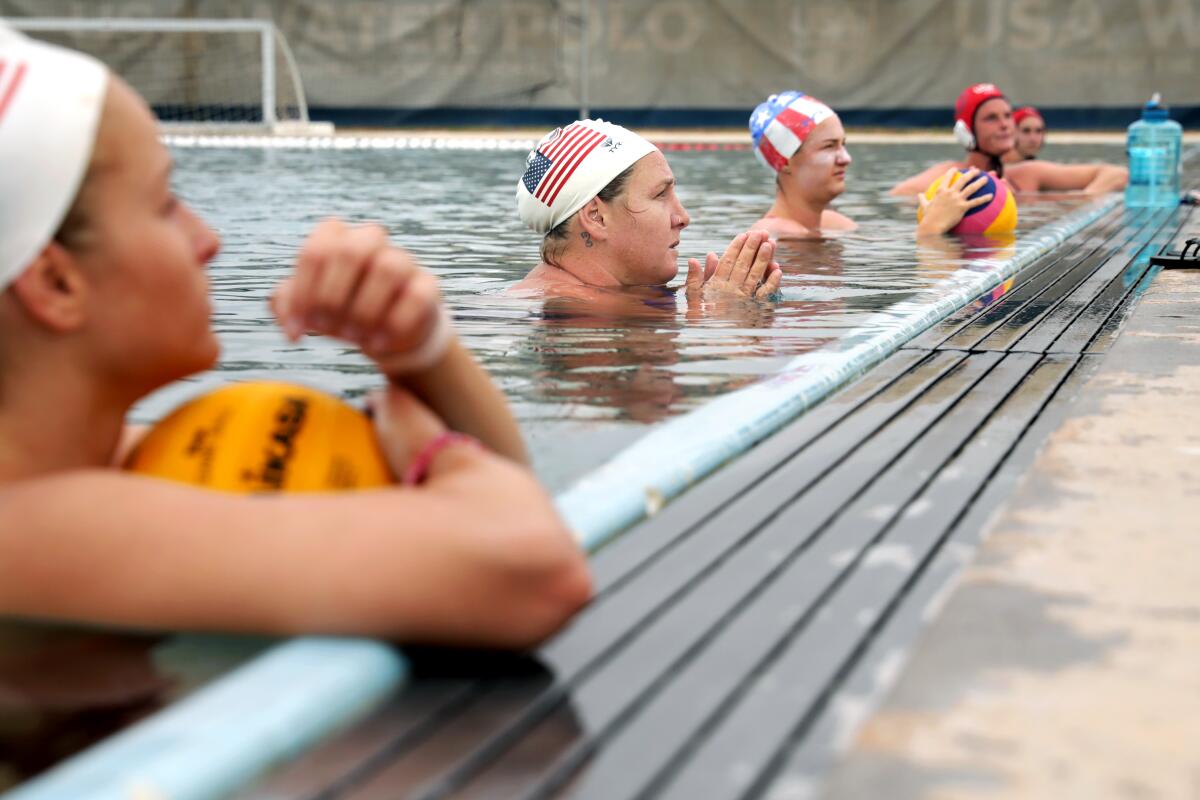
TOKYO — There were deaths, near deaths and gruesome injuries.
There was a mass shooting in Las Vegas, a nightclub collapse in South Korea and a terrorist bombing at a train station in Belgium. And all that happened before COVID-19 put everyone’s life on hold for a year.
The last five years have been a series of tragedies and triumphs for the women on the U.S. water polo team, experiences coach Adam Krikorian insists have prepared them for winning an unprecedented third consecutive Olympic title in Tokyo — a quest that starts Saturday when the U.S. plays Japan.
The Tokyo Olympics are officially set to begin Friday with the opening ceremony. Here’s how to watch and stream NBC’s coverage of the event.
“It feels like this is the way it was supposed to happen,” he said. “Every time any one of us deal with some adversity and challenges, as painful or as sad as it can be, we do look at it as an opportunity to grow and to be better.
“Embracing that, we’ve accepted it as part of our journey and, in some ways, of a greater purpose.”
If that makes it a team of destiny, it’s one Krikorian and his players have paid for with enough blood, sweat and especially tears to fill an Olympic-sized swimming pool.
It started shortly after the team arrived in Rio de Janeiro for the last Olympics when Krikorian got a text from home informing him that his brother Blake had died of a heart attack at 48. The coach left the team and booked a 12-hour flight to San Francisco. He briefly considered staying there but returned to Brazil where, hours before the first game, he learned the mother of defender Melissa Seidemann had suffered a stroke and was in a Rio hospital.
The team rolled the competition unbeaten, outscoring its six opponents 73-32; after the final both Seidemann and Krikorian broke down on the pool deck. When the players stepped off the medal podium, they filed over to their still-grieving coach and, one by one, draped 13 gold medals around his neck.
“You do feel like there’s a greater power that is testing your resolve, as an individual and as a team,” Krikorian said. “We’re trying to teach you a lesson, you know, about where this fits into the puzzle.”
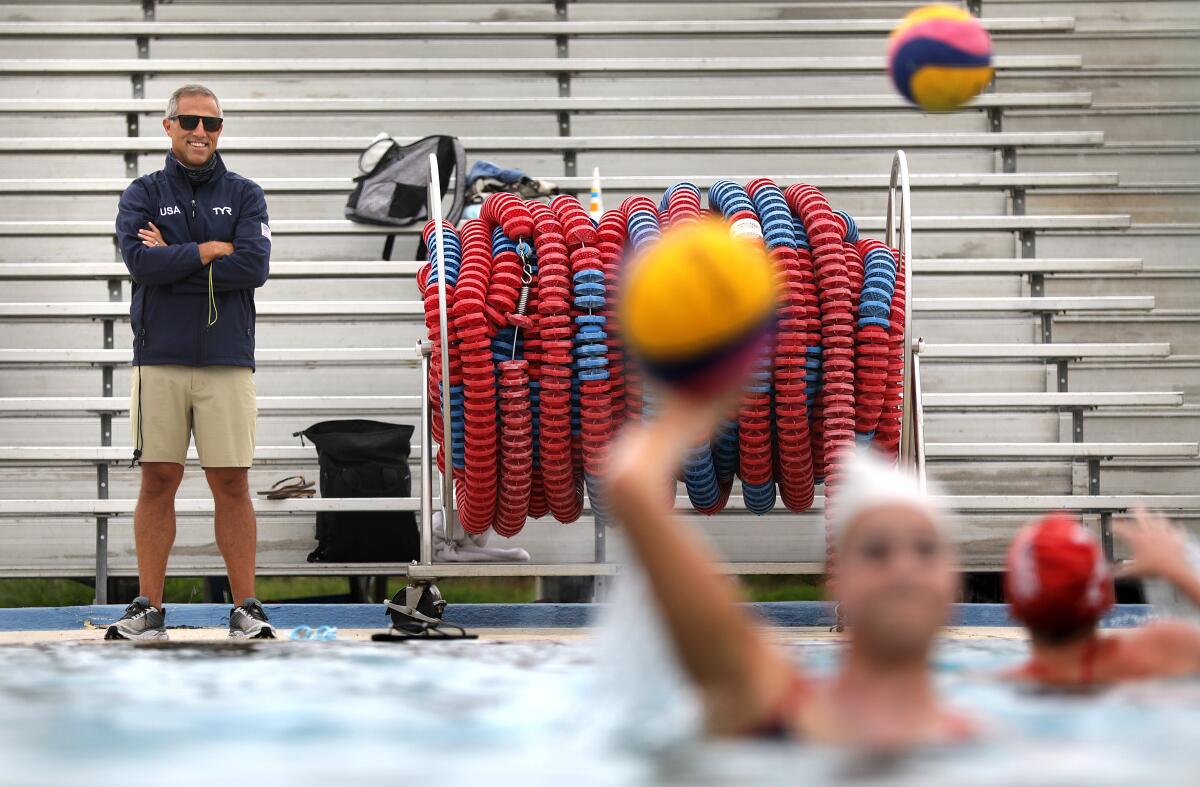
That puzzle became more complicated a year later when a gunman opened fire on a country music festival in Las Vegas, killing 59 and wounding more than 400. Seidemann and teammates Maddie Musselman and Alys Williams attended the festival, although only Williams was still there when the shooting started.
Convinced there were multiple shooters, Williams and her boyfriend ignored the warnings of police and starting running. Someone screamed that they had been hit, but Williams didn’t look back.
“I knew what was happening,” she said. “I wasn’t curious.”
Seidemann, stunned, watched it on TV from a few blocks away. Nearly seven hours later, when it was safe to go downtown, she picked her teammate up, canceled her flight home and drove Williams to Huntington Beach instead.
A year earlier, traveling through Belgium to a tournament in the Netherlands, Williams showed up late for her train and missed a connection. Had she been on the train, she would have been in the Maalbeek metro station in Brussels when a suicide bomber set off explosives, killing 20 and injuring more than 100.
After the Las Vegas shooting, a friend of Williams’ mother bought her a lucky horseshoe. “She was like ‘hang this in your house. You need this,’” Williams said with a smile.
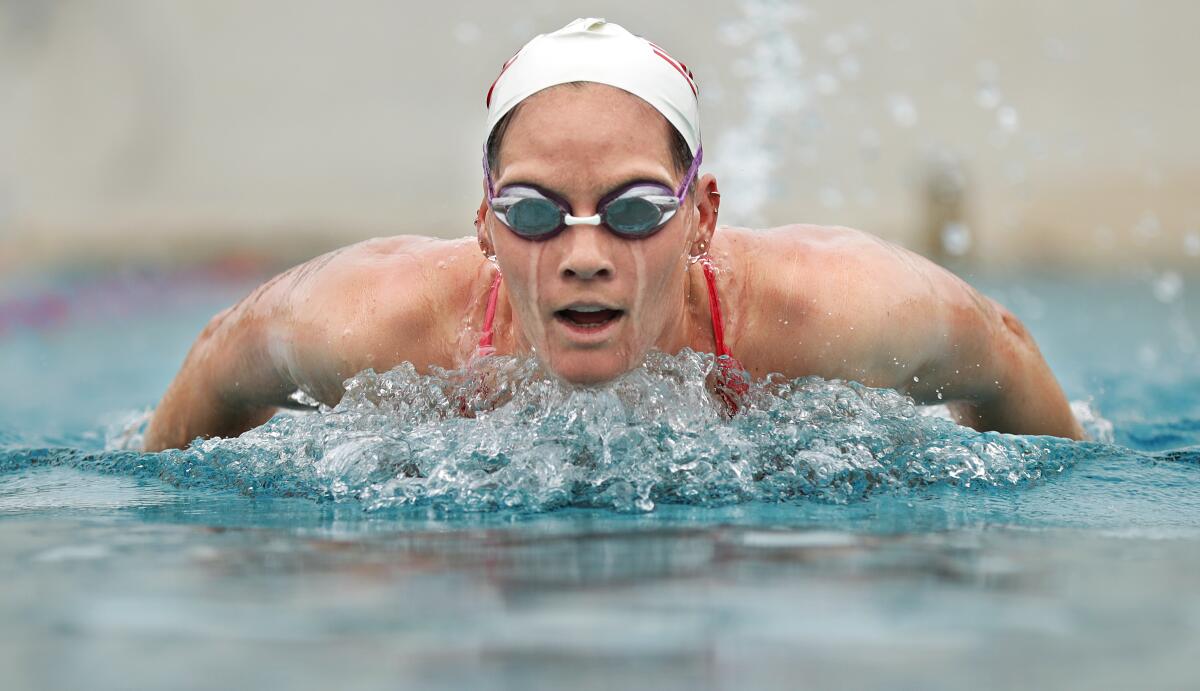
Then, turning serious again, she added: “I have a belief that everything happens for a reason. I don’t get to know why. I obsessed over why after the shooting for so long until I realized it’s not my place to know why. It’s my place to keep moving forward.”
Williams had a third brush with death in July 2019 at a Seoul nightclub. The U.S. had won the FINA World Championships that day, and Williams and a couple of exhausted teammates decided to leave the victory celebration early and return to their rooms in the athletes’ village.
Forty-five minutes later a second-floor balcony collapsed, killing two and injuring 17.
Kaleigh Gilchrist, who had played more than 20 minutes in the gold-medal game, was among those injured, sustaining cuts to her left leg that were so deep a team trainer on the scene used a belt to make a tourniquet. Doctors, who needed more than 100 stitches to close the wounds, told her if the wounds had been just millimeters deeper, she would have lost the use of her left foot.
Her father, Sandy, had swum for Canada in the 1964 Olympics in Tokyo and competing in the Games in the same city for the U.S. had long been a dream for Gilchrist. Now she faced months of painful rehab if she had any hope of turning that dream into a reality.
Kobe Bryant, a Newport Beach neighbor who knew a little something about rehab, became a mentor in what Gilchrist’s trainer dubbed the Mamba Mission. Then Bryant was gone, killed in a helicopter crash. Not long before that Gilchrist had lost an earlier mentor when Bill Barnett, her coach at Newport Harbor High, died of leukemia.
Suddenly physical therapy wasn’t the only kind of help Gilchrist needed.
“I had horse blinders on. Like ‘I’ve got to get better physically. Twelve hours a day,’” she said. “And then little things popped up here and there with some panics and claustrophobia. I realized I needed help.”
Gilchrist began meeting with three different therapists in addition to the physical rehab and daily training sessions. It was exhausting, physically and emotionally, and without the COVID delay, Krikorian isn’t sure she would have made the team for Tokyo.
“There’s no question that extra year helped her,” he said. “Because of her experiences and because of this year off, it’s given her some time to reevaluate, reassess and better herself. Naturally that reflects itself in the water. But that is secondary, to be honest.”
Now the focus turns to the pursuit of a third straight gold medal, something that’s never been accomplished in the women’s tournament, which this year has grown by two to include 10 teams.
Krikorian’s team is the most decorated in the history of the women’s game, having won every major international title since 2013. But while the team includes eight players from the championship squad in Rio de Janeiro, the trial and tribulations of the last five years make the Tokyo team unique.
Despite deaths, accidents and a mass shooting, the U.S. Olympic women’s water polo team has climbed back from adversity again and again.
“This is a special group,” goalie Ashleigh Johnson said. “We’ve gone through a lot of adversity together. And we’ve gotten through it together. ‘Together’ is the key word because nothing that any one of us has experienced [have] they experienced alone.”
Gilchrist agreed.
“I would be very interested to see if any other team has gone through as much as we’ve gone through,” she said. “The outside adversity this group has overcome is insane. Maybe one day [they’ll] write a book about it.”
The last chapter of that book begins Saturday.
More to Read
Go beyond the scoreboard
Get the latest on L.A.'s teams in the daily Sports Report newsletter.
You may occasionally receive promotional content from the Los Angeles Times.

